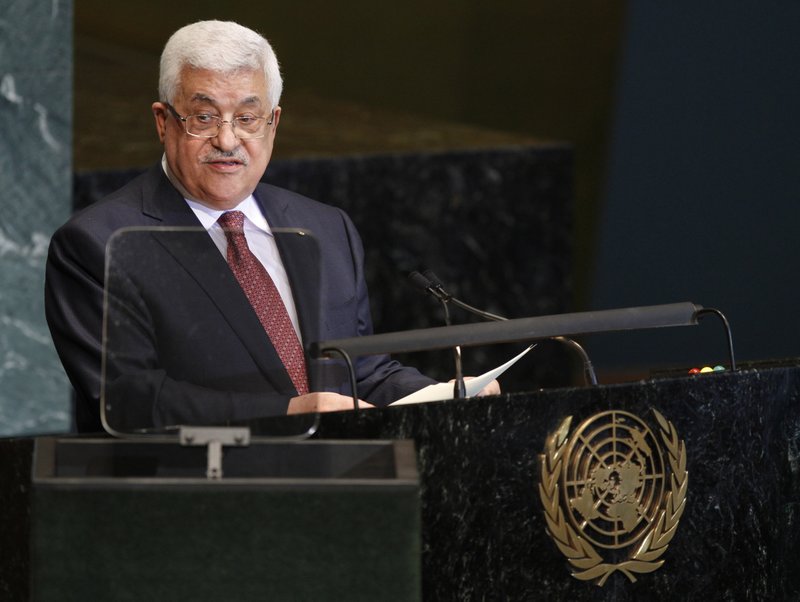Palestinian President Mahmoud Abbas said Saturday there will be no peace deal with Israel unless the Jewish state stops settlement construction in areas the Palestinians claim for their future state.
“Israel must choose between peace and the continuation of settlements,” Abbas said in his address to the U.N. General Assembly’s annual ministerial meeting.
Direct peace talks between Israel and the Palestinians stalled only three weeks after starting in Washington in early September over the impending end of a 10-month freeze on new Israeli settlement construction on land claimed by the Palestinians.
Abbas reaffirmed the Palestinian commitment to try to reach a peace deal.
“We have decided to enter into final status negotiations. We will continue to exert every effort to reach an agreement for Palestinian-Israeli peace within one year in accordance with resolutions of international legitimacy ... and the vision of the two-state solution,” Abbas told ministers and diplomats.
But with a Sunday deadline looming for Israel to resume the contested building, the Palestinians are waiting for U.S. efforts to break the impasse. President Barack Obama has increasingly placed efforts to resolve the conflict at the center of his foreign policy, but both Israeli and Palestinian officials said Saturday a deal was far from certain.
State Department spokesman P.J. Crowley said U.S. special Mideast peace envoy George Mitchell would meet Abbas on Saturday.
“We are doing everything we can to keep the parties in direct talks,” Crowley said.
In his U.N. speech, Abbas said, “Our demands for the cessation of settlement activities, the lifting of the siege (of Gaza) and an end to all other illegal Israel policies and practices do not constitute arbitrary preconditions in the peace process.”
These are past obligations that Israel is required to implement, he said, and Israel’s implementation “will lead to the creation of the necessary environment for the success of the negotiations.”
He said the Palestinians and the wider Middle East are continuously pushed into “the corner of violence and conflict” as a result of Israel’s “mentality of expansion and domination.”
The Palestinian president demanded an end to Israel’s repeated flouting of U.N. resolutions, its destruction of the historical identity of Jerusalem, and its blockade of the Gaza Strip which he said has created massive suffering for the people living there and prevented reconstruction.
On the settlement dispute, some in Israel have proposed, for example, that limited building will resume but not the relatively unfettered construction that prevailed before the Israeli moratorium.
Palestinians say it is essential that Israel leave the restrictions on settlement construction in place.
Read tomorrow's Arkansas Democrat-Gazette for full details.
Thank you for coming to the Web site of the Arkansas Democrat-Gazette. We're working to keep you informed with the latest breaking news.
